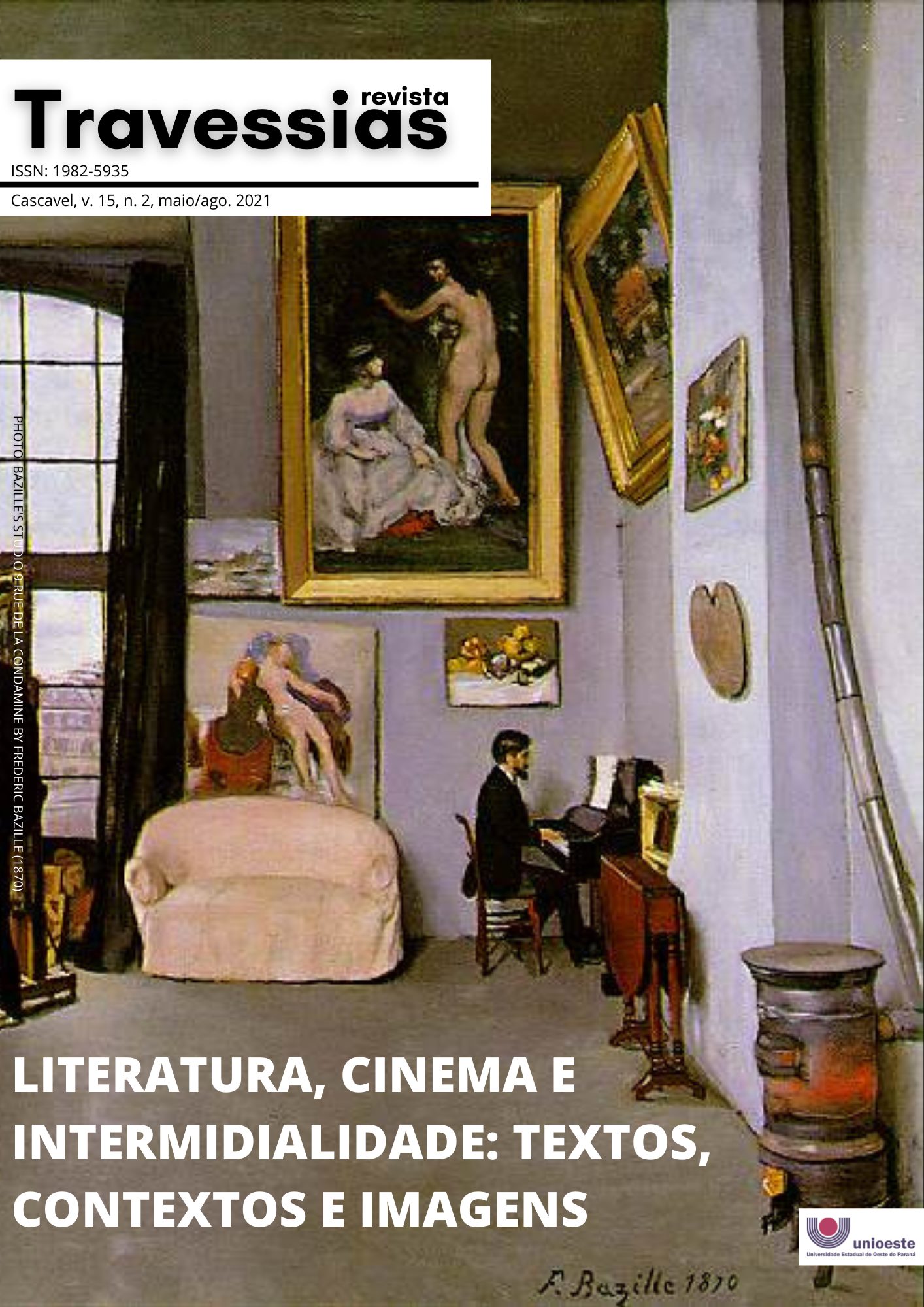Looking through: the use of the free indirect subjetive camera in contemporary cinema
DOI:
https://doi.org/10.48075/rt.v15i2.27663Keywords:
Free Indirect Subjective, Poetry, Mother!Abstract
This research proposes to explore the cinematographic universe from the perspective of director and therefore it uses the free indirect subjective camera (a term from Italian filmaker Pier Paolo Pasolini) in contemporary cinema to illustrate the influence of Poetry Cinema today. The hybridity presente in current Productions allows this resource to help in the production of the meanings of diegesis in a peculiar way. Thus, in this article, its is intended to point out some examples of free indirect subjective found in current movie in order to presente its relevance for the construction of the work, the viewer’s perception and, mainly, its collaboration with regard to the gaze the director about the movie and its implications for the whole. Based in Pasolini theory, the focus of this article is to analyze the elements of poetry inserted in cinema having as its main tool the use of the camera. Furthermore, we will approach the theory of Tofalini (2013) on the lyrical novel, Ferreira (2004) on the poetics of cinema and Pier Paolo Pasolini on the Poetry Cinema and we wil seek to point out the brushstrokes of poetry presente in contemporary cinema by analyzing movie Mother! (2017), directed by Darren Aronofsky. Is it possible in current Productions to identity the cinema of poetry? If postmodernity is hybrid, Where can we highlight this specif aspect as a constitutive element in cinematographic narrative?
Downloads
References
BENJAMIN, Walter. Origem do drama barroco alemão. Tradução: Sergio Paulo Rouanet. São Paulo: Editora Brasiliense, 1984.
FERREIRA, Carlos Melo. As poéticas do Cinema: A poética da terra e os rumos do humano na ordem do fílmico. Porto: Edições Afrontamento, 2004.
GUERÓN, Rodrigo. Da imagem ao clichê e do clichê à imagem: Deleuze, cinema e pensamento. Rio de Janeiro: NAU Editora, 2011.
KINSKI, Davi. Pasolini, do Neorrealismo ao Cinema Poesia. Rio de Janeiro: Laranja Original, 2016.
MÃE! Direção: Darren Aronofsky. Paramount Pictures. DVD color, 115 min, 2017.
MARTELO, Rosa Maria. O cinema da poesia. Lisboa: Sistema Solar, 2012.
PASOLINI, Pier Paolo. Empirismo Herege. Lisboa: Assirio e Alvim, 1982.
SAVERVINI, Erika. Índices de um Cinema de Poesia: Pier Paolo Pasolini, Luis Buñuel e Krzysztof Kieslowski. Belo Horizonte: Editora UFMG, 2004.
TARKOVSKI, Andrei. Esculpir o tempo. São Paulo: Martins Fontes, 1998.
TOFALINI, Luzia A. Berloffa. Romance Lírico: O Processo de ‘Liricização’ do Romance de Raul Brandão. Maringá: EDUEM, 2013.
TORCHI CHACAROSQUI FONSECA, Gicelma. O Filme Caramujo-Flor e sua Configuração de Cinema de Poesia Mestiço. Revista.doc, [S.l.], n. 7, p. 37-60, jan./jun. 2009.
Downloads
Published
How to Cite
Issue
Section
License
Creative Copyright Notice
Policy for Free Access Journals
Authors who publish in this journal agree to the following terms:
1. Authors keep the copyright and grant the journal the right of first publication, with the work simultaneously licensed under the Creative Commons Attribution License, which allows sharing the trial with acknowledgment of authorship and initial publication in this journal.
2. Authors are authorized to take additional contracts separately, for non-exclusive distribution of the work version, published in this journal (eg publish in institutional repository or as a book chapter), with acknowledgment of authorship and initial publication in this journal.
3. Authors are allowed and encouraged to publish and distribute their work online (eg in institutional repositories or on their personal page) at any point before or during the editorial process, as this can generate productive changes, as well as increase both impact and citation of the published trial (See The Effect of Free Access).
Creative Commons License
This work is licensed under a Creative Commons Attribution–NonCommercial-shareaswell 4.0 International License, which allows you to share, copy, distribute, display, reproduce, completely or part of the work, since there is no commercial purpose, and authors and source are cited.



